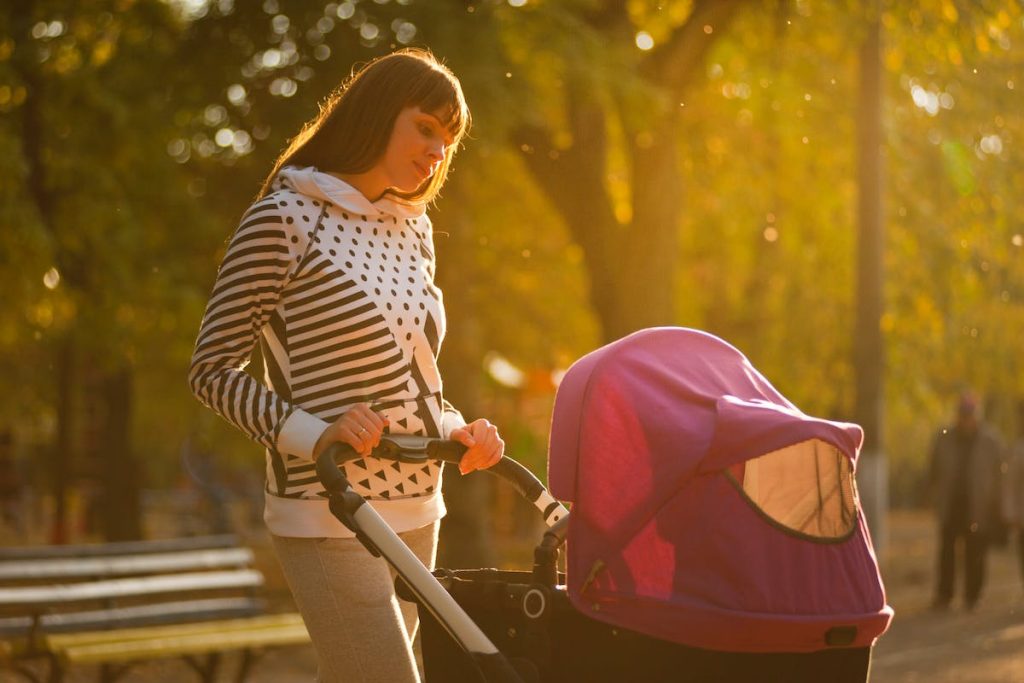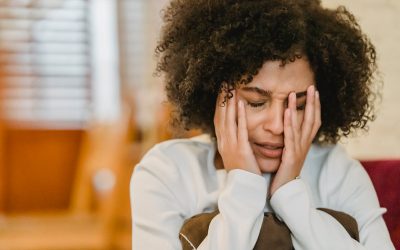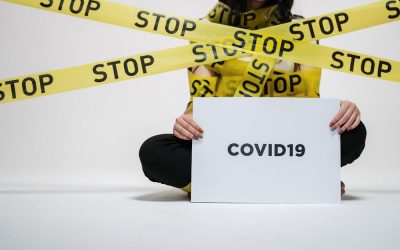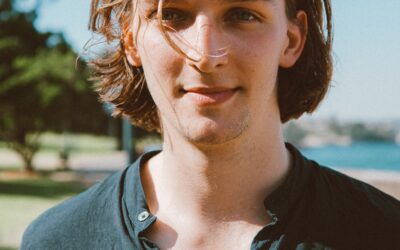Imagine this: nestled in your arms lies your perfect newborn, a tiny miracle that fills your heart with joy. Yet, amidst the overwhelming happiness, a tiny seed of worry might sprout as you notice more hair clinging to your brush or circling the shower drain. This may be postpartum hair loss (PPHL), a temporary shedding that can occur after childbirth.
Experiencing excessive hair loss after having a baby may seem daunting. But before you dive into a sea of panicked Googling, take a deep, calming breath. Yes, the shedding might seem dramatic, but here’s the comforting truth: it’s completely normal.
In fact, hair loss is more the norm than the exception in the postnatal phase, affecting as many as 40% to 80% of new mothers. This phenomenon is generally temporary and largely controllable with appropriate care and treatment.
Still, navigating postpartum hair loss can be challenging, especially since it can impact your appearance. However, understanding the cause can be the first step towards addressing it. Knowledge empowers you and can turn worry into action.
Why Does Hair Loss After Childbirth Happen?
Understanding postpartum hair loss starts with gaining insight into the hair’s natural cycle, which comprises various phases, including a growth phase (anagen) and a resting phase (telogen). Typically, 85% to 95% of your hair remains in the growth phase while the remainder rests. However, hormonal imbalances ensuing childbirth can push more hair into the resting phase, culminating in significant hair loss, known as telogen effluvium.
This condition of accelerated hair loss is essentially nature’s method to bring your body back to its pre-pregnancy hormone equilibrium. Pregnancy hormones cause a surge in the amount of hair in the growth phase. However, these hormone levels dip after childbirth, leading your body to expel the extra hair.
Think of it like this: during pregnancy, your body embarks on a hormonal rollercoaster, keeping your hair follicles firmly in their “growth phase.” But once your little one arrives and those hormones settle back to their pre-pregnancy rhythm, many follicles take a well-deserved “vacation,” entering a resting phase that leads to increased shedding. It’s like your hair is saying, “Whew, that was a workout! Time for a recharge!”
Although postpartum hair loss appears drastic – where you might lose more than the typical 100 strands per day, most women report initial signs of hair regrowth within 3 to 6 months after delivery. Restoring your hair volume entirely may take about a year or longer, depending on individual variances. However, the silver lining here is that there are effective methods to potentially expedite this process, which will be further discussed in the following sections of this blog.
Hair Loss After Baby – Truths Beyond Common Myths
Amidst the flurry of information (and sometimes misinformation) online, it’s natural to get confused about postpartum hair loss. Let’s address some common myths surrounding hair loss after childbirth:
Myth 1: Postpartum hair loss is permanent.
Fact: Postpartum hair loss is rarely permanent. As mentioned above, this condition is temporary, and most women observe significant hair regrowth within 6 months to a year after childbirth. As the hormone levels in your body begin to re-balance, hair regrowth follows, although the timeframe can vary among individuals.
Myth 2: Hair loss after childbirth implies a nutritional deficiency.
Fact: Although nutrition does play a crucial role in hair health, postpartum hair loss is primarily a hormonal issue. While postnatal diet and nutritional deficiencies can exacerbate hair loss, they are not typically the direct cause.
Myth 3: Cutting or shaving hair can prevent or reduce postpartum hair loss.
Fact: The idea that trimming or shaving your hair might help combat alopecia after having a baby is a myth. Hair loss is linked to hormonal shifts inside your body post-delivery, and external factors such as hair-cutting or shaving do not affect this internal process.
Myth 4: Everybody’s hair reacts the same way after childbirth.
Fact: It’s important to remember that not all women experience postpartum hair loss to the same extent. Some women may experience severe hair loss, while others may experience only slight thinning. It’s a highly individual process, often influenced by factors such as general health, genetics, and stress levels.
Myth 5: Frequent shampooing causes postpartum hair loss.
Fact: Hair is not made weaker by shampooing. This myth stems from the observation that hair fall is more noticeable during or immediately after a shower. However, it merely represents the shedding of hair that was already resting and ready to fall out.
Myth 6: Not washing your hair enough causes hair loss.
Fact: While proper hair care is important, infrequent washing doesn’t trigger alopecia after giving birth. Again, the shedding stems from hormonal changes, not hygiene habits. In fact, over-washing can strip your scalp of natural oils, potentially drying out your hair and making it more prone to breakage. Focus on gentle cleansing with lukewarm water and a mild shampoo suitable for your hair type.
Myth 7: Certain foods can cause hair loss.
Fact: While a balanced diet is always crucial, no specific food directly causes postpartum hair loss. However, dietary deficiencies in iron, biotin, or other nutrients can contribute to overall hair health. So, aim for a diet rich in fruits, vegetables, whole grains, and lean protein sources to ensure your body has the building blocks for healthy hair growth.
How to Address Hair Loss After Having a Baby
Knowing the suitable approaches to care for your hair and scalp after giving birth is essential for nurturing regrowth and restoring confidence. Below, we’ve listed 5 effective strategies for post-baby hair thinning to promote hair regrowth and prevent further loss.
Nutritional Support for Hair Regrowth
Nutrition plays a crucial role in hair health. So, incorporating certain nutrients in your diet can support hair regrowth. Top trichologists and nutritionists in Dublin reinforce the notion that a balanced diet, replete with fruits, vegetables, lean meats, and legumes, can work wonders for hair regrowth.
Notably, protein, biotin, iron, and vitamins A, C, D, and E can contribute significantly. Dublin’s markets offer a range of local produce rich in these essential nutrients. Meanwhile, reputable hair clinics offer supplements for hair regrowth.
Gentle Hair Practices
Treat your hair with kindness. Opt for gentle shampoos and conditioners suitable for sensitive scalps. Look for labels mentioning “fortifying” or “nourishing” properties, as these often contain ingredients like biotin or panthenol that can support hair health.
Avoid harsh styling products or excessive heat from blow dryers or straighteners. Remember, your hair is already experiencing a sensitive phase. So, prioritise gentle handling and nourishing care. Experiment with different hair masks or leave-in conditioners to add extra moisture and prevent breakage.
Moreover, take some time to give your scalp a gentle massage, preferably with lukewarm oil, as it might stimulate hair growth. When it comes to styling, opt for soft bands over tight elastics, avoiding hairstyles that pull and stress your hair roots to prevent traction alopecia. Also, wait until your hair is dry before brushing to reduce breakage.
Proven Hair Loss Medications
Taking charge of hair loss often involves a combination of natural and medicinal therapies. Over-the-counter hair growth medications have been proven to be effective and are readily available at your local pharmacies. These treatments work by prolonging the growth phase of hair follicles, leading to thicker and fuller hair growth over time. Meanwhile, prescription solutions may be required for more severe conditions.
It is important to note that hair loss medication isn’t a one-size-fits-all solution. Each individual’s experience with hair loss is unique, and the treatments prove most effective when tailored to individual needs.
Professional and Clinical Solutions
When it comes to postpartum hair loss or any other type of alopecia, the first thing you need to do is to see a hair and scalp specialist. Remember, each person’s experience of hair loss varies. So, it’s essential to consult with professionals about your condition.
A certified trichologist in Dublin can assess your situation and offer personalised advice or medical treatments if necessary. They can guide you on the suitability, process, and potential side effects, ensuring that the treatment aligns with your specific needs and preferences.
It is worth mentioning that, beyond home care and topical treatments, there are professional solutions you can consider, especially if you have severe postpartum hair loss. Platelet-rich plasma (PRP) therapy and laser treatments for alopecia have shown promising results in promoting hair growth. These therapies are provided at several specialised clinics in Dublin, like the Universal Hair & Scalp Clinic.
Stress and Lifestyle Management
Stress has been found to exacerbate hair loss. So, integrating stress management techniques into your postnatal life may be beneficial. Simple methods like deep breathing, yoga, or mindfulness meditation can go a long way. Many community centres and gyms around Dublin offer classes in these practices.
Interestingly, regular physical exercise is another lifestyle change that can contribute to hair health. Exercise enhances circulation, indirectly promoting hair growth by delivering more nutrients to the hair follicles. So, whether it’s a brisk walk in the park or a mother-and-baby fitness class, find what works for you and make it a part of your routine.
Long-Term Hair Care Tips After Childbirth
Addressing postpartum hair loss requires more than simply initiating a treatment plan. Long-term hair care, setting realistic expectations, adjusting to potential recurrences, and managing the emotional aspects of hair loss are essential components of a comprehensive recovery strategy.
Timeline and Expectations for Hair Regrowth
Typically, most women observe noticeable hair regrowth within 6 to 12 months post-delivery. However, this is a general timeline, and the recovery can vary between individuals. Setting realistic expectations is crucial during this period. Remember, hair regrowth is a gradual process, and it’s expected to experience periodic fluctuations in the recovery journey.
Maintaining Hair Health After Postpartum Hair Loss
Implement an ongoing hair care regimen to ensure the health and vitality of your regrown hair. This can include routinely nourishing your hair with essential oils, consistently following a rich and balanced diet, minimising heat and chemical treatments, and practising stress management techniques.
Future Pregnancies and Possible Recurrence
It’s important to note that each pregnancy is unique and may or may not trigger a recurrence of postpartum hair loss. While the possibility exists, the experience and knowledge gained during the initial recovery phase can serve as a roadmap for managing future occurrences. Moreover, remember that postpartum hair loss is a natural physiological response, not an indication of any deficiencies or long-term problems.
Emotional Aspects of Long-Term Hair Management
Alopecia doesn’t just affect appearance. It can also have emotional implications, causing distress and affecting self-esteem. These feelings are perfectly normal and valid. Seek support from loved ones, healthcare professionals, or support groups to help navigate the emotional aspects of postpartum hair loss. Remember, it’s essential to look after your emotional well-being and physical health as you navigate this journey.
In conclusion, postpartum hair loss is a natural process influenced by hormonal changes. But it doesn’t have to be a cause for distress. You can effectively manage this condition with the help of a trusted trichologist and proper hair care practices. While it does take time for your hair to fully recover, be assured that it’s typically a temporary phase.
Remember, each woman’s postpartum experience is unique. So, prioritise listening to your body and seeking expert guidance when needed. Most importantly, know that your beautiful hair will return in due time. While the strategies shared here are known to help, it’s always ideal to seek professional advice to devise a hair loss treatment plan that best suits your needs.
Are you experiencing hair loss after baby? Our dedicated team of experts is ready to support you with personalised advice to ensure your hair’s vitality is rejuvenated. Take the first step to your postpartum hair recovery journey now. Call us on +353 (0)1 679 3618 or click here to schedule a consultation with our trusted trichologist!
Royalty-free image supplied from Pexels as part of the SEO service from 3R






